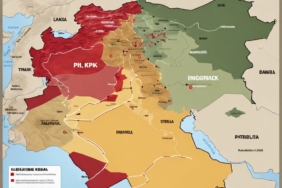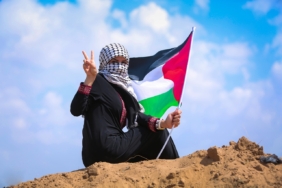In a concerted effort to prevent a significant escalation of conflict in the Middle East, both Arab and Western nations are calling on Iran to exercise restraint. This diplomatic initiative comes in response to Iran’s vow to retaliate against Israel following the assassination of Hamas’s political leader, Ismail Haniyeh, in Tehran last week.
The urgency of this diplomatic push is underscored by the involvement of key regional players, including Jordan, Egypt, Saudi Arabia, and Qatar, all of whom maintain close ties with Washington. These countries are joined by the United States, France, and other international actors who are also striving to de-escalate tensions and revive stalled negotiations aimed at achieving a cease-fire in the Gaza Strip.
Anxiety has permeated the region since a devastating explosion in Tehran, widely believed to be orchestrated by Israeli forces, resulted in the death of Haniyeh on July 31. This incident transpired mere hours after an Israeli airstrike in Lebanon claimed the life of a senior Hezbollah commander, Fuad Shukr. In the wake of these events, Iran and its allied militias—comprising Hamas in Gaza, Hezbollah in Lebanon, and the Houthis in Yemen—have vowed to enact revenge for the dual killings.
Israeli Prime Minister Benjamin Netanyahu has made it clear that Israel will respond decisively, stating that any acts of aggression against the nation will incur a “heavy price,” irrespective of the source. Tensions have been mounting, especially as Hezbollah, Iran’s most potent proxy force, has been engaged in frequent exchanges of fire with Israeli forces along the Israel-Lebanon border for several months.
Israeli officials have hinted at the possibility of a military invasion of Lebanon, a scenario that the White House and other international stakeholders are keen to avert. The ramifications of a full-scale war involving Israel and Hezbollah, or direct engagement with Iran, would be profoundly destabilizing for the entire region.
As the prospect of a broader conflict looms, Jordan’s Foreign Minister, Ayman al-Safadi, has embarked on diplomatic talks, meeting twice within the past week with senior Iranian officials, including a notable encounter with the newly elected Iranian president, Masoud Pezeshkian, during a rare visit to Tehran. This dialogue signifies a crucial step towards fostering communication in an increasingly volatile landscape.














